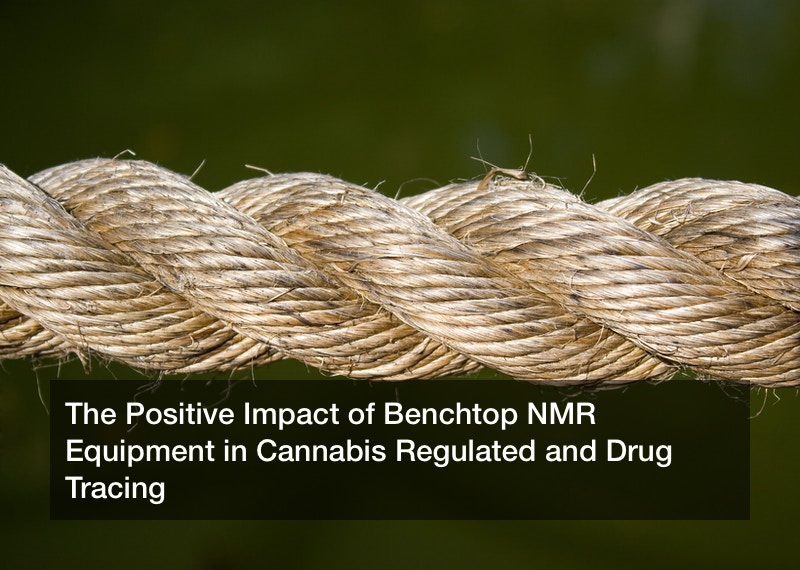The Positive Impact of Benchtop NMR Equipment in Cannabis Regulated and Drug Tracing

A benchtop NMR presents many opportunities in the fields of biochemistry, medicine, and physics. New developments in research continue to unlock the potential of NMR analysis and its application for various industries. Not only have the devices become more accurate, but they are also more portable and affordable.
The Development of NMR Tools
Before the advent of the low field NMR, chemists took weeks to analyze the chemical properties of matter. Many processes available to them at the time destroyed samples. Tests were repetitive and prone to errors. For many industries, these factors had an impact on their output and productivity.
It was not until scientists realized they could detect a chemical-shift from Nuclear Magnetic Resonance analysis. Using the approach, compounds could be examined without destroying the sample. Furthermore, it did not require skilled personnel to operate and maintain cryogenic systems.
In the 50’s, the first commercially available spectrometers became an important tool for scientists. Unfortunately, they had large and expensive magnets. It was necessary to develop a desktop NMR that could be used in different locations. They needed equipment that will not require a three-phase power supply to support its cryogenic magnets.
Today, desktop devices can perform some of the critical molecular analyses in real-time. They speed up the production line by providing quality assurance and control, at much faster speeds. Low-field NMR devices have useful applications for chemists and researchers in the pharmaceutical and the cannabis industries.
Table Top NMR Applications
Drug Tracing
One of the advantages of a desktop low field NMR device is its portability. They can be used in the field for data collection, where other equipment would be cumbersome to use.
A possible application for tabletop NMR is in drug tracing. Even though sensitivity is an issue for low-field benchtop NMR spectrometer, research shows that they can be effectively utilized to detect drugs in crime scenes.
Morphine, Heroin, Amphetamines, and other drugs, are detected by analyzing the 1-D and 2-D spectra. By analyzing the 1H NMR chemical shifts, the connections between the protons and carbon can be established.
In crime scenes, it is advantageous to analyze the composition of the chemicals at the site. Because the analysis is in real-time, new data can inform other tests that would have been ignored due to oversight. Since the equipment is easy-to-use and portable, field officers can perform their tests to enhance data collection and decision making in crime cases.
Cannabis Research
The legalization of cannabis in parts of America has generated a lot of interest among policymakers, researchers, and entrepreneurs. Low field NMR has already proven effective in different fields of organic chemistry.
For marijuana production and research, new regulations have been proposed to enhance testing and guarantee a product of consistent quality. Cannabis has many compounds that ought to be analyzed before it is approved for markets. Accurate analysis is necessary to determine factors such as potency and the presence of contaminants and heavy metals.
You can also establish the safety, strain, and quality of the compound in real-time, without creating bottlenecks in the supply chain. Nuclear Magnetic Resonance is a viable method for the sector to speed-up data analysis, without compromising on quality.
Low field NMR tabletop devices will equally be useful for field researchers who need to examine cannabis samples from remote locations. Data on terpene profile, toxins, contaminants, and potency can be conveniently collected throughout the production chain.
Additionally, the sector must pass the rigors of pharmaceutical regulations if medical marijuana is to become a reality. Proponents hope that it can be a form of therapy to complement other conventional treatment options. NMR is a non-destructive technique that can determine purity and provide information on toxins, to ensure patient safety.
In Conclusion
Tabletop NMR is proving useful for carrying out pharmaceutical, biochemical, and drug-related tests. Its easy-to-use, portability, and affordability factors have transformed workflow and enhanced productivity in many industries. If you want to learn more about low field NMR and its applications, visit our website today.
